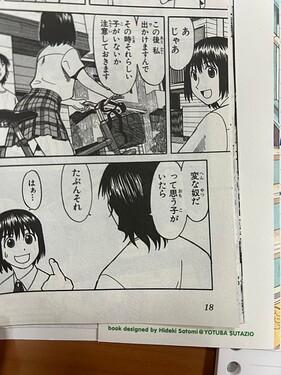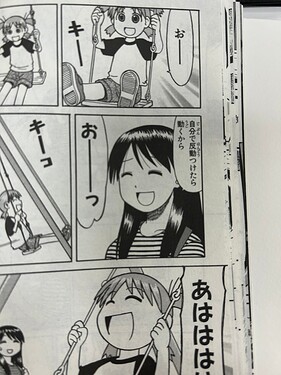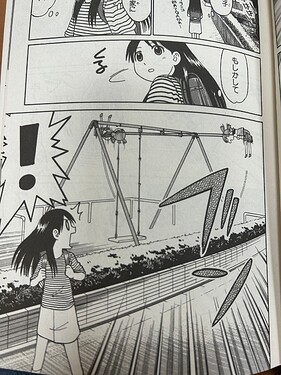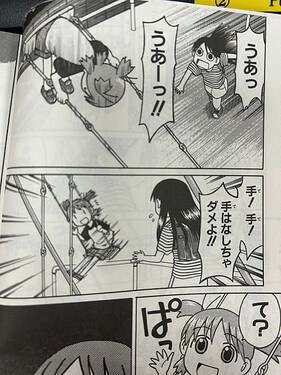よつば on the swings and えな’s reactions are my favorite part of this volume 
The one bit I’m a little unclear on is this line:
自分で反動つけたら動くから
My interpretation is something like “You can move yourself by kicking (swinging your legs)”
but that’s more from context than a strict understanding.
自分で - on your own / by yourself / under your own power
反動 - reaction/recoil/kick — here I’m not sure if the intention is how the swinger gains momentum as a reaction to swinging their legs, or the more direct “kick” meaning?
つけたら - the たら (JLPT N4) | Bunpro conjunction particle used with つける… 付ける? I’ve seen that verb used with a lot of physical activities.
動くから - you move… because of the preceding clause (if you kick)?
I feel so close to understanding, but it’s just not a strict understanding.
—
One last deck QA point:
辺 is presented as ほとりinstead of ヘン.








 . I think we’re around the same level of WK and BP and I’d say I’m having to work hard at all the same areas that you are mentioning.
. I think we’re around the same level of WK and BP and I’d say I’m having to work hard at all the same areas that you are mentioning.